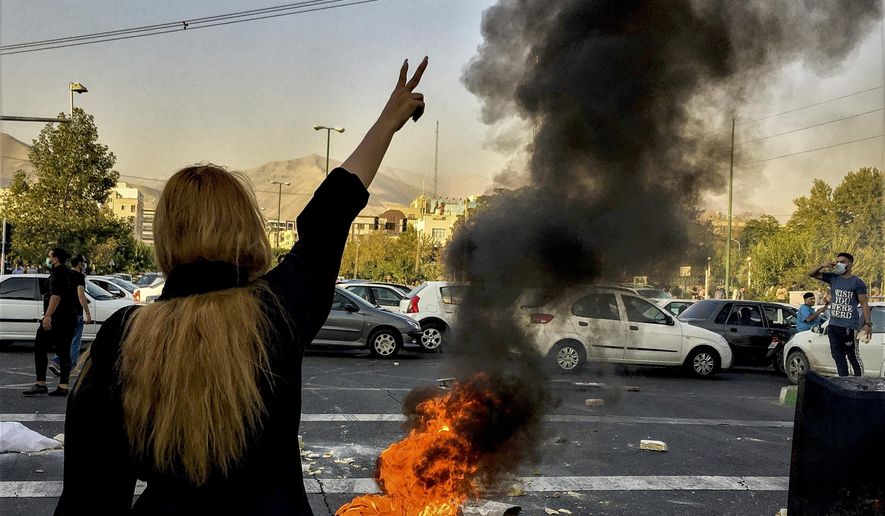Iran and its soccer team are in the international spotlight ahead of World Cup soccer games this month against Western rivals England, Wales and the U.S., with Tehran’s brutal crackdown on domestic protests sparking blowback abroad and potentially fueling tension between its athletes and government leaders at home.
Iran is set to face England in a World Cup group stage match Monday. Britain, the U.S. and other major global players have all but abandoned diplomatic talks with Tehran to limit the Islamic republic’s nuclear program. Those talks have fallen apart partly because of Iran’s direct military support of Russia’s war in Ukraine.
From Tehran’s perspective, there are perhaps more pressing concerns, which could bring deep divisions within Iranian society to the forefront.
Iranian soccer legend Ali Daei said this week that he wouldn’t travel to Qatar for Iran’s World Cup games. He said he desires to stand in solidarity with Iranians who have been demonstrating against their government for two months.
The protests began in September after Mahsa Amini, 22, was killed while in police custody. Iran’s morality police accused her of wearing her hijab too loosely. Her death struck a nerve across Iranian society and has led to a near-unprecedented outcry against the country’s strict version of Islamic law.
Iranian dissident groups say at least 560 protesters have been killed and thousands more have been arrested.
SEE ALSO: Gen. Mark Milley: China attacking Taiwan would be like Russia attacking Ukraine
Mr. Daei explained his decision in an Instagram post on Monday. He said he wanted to remain “in my homeland and express my sympathy with all the families who have lost loved ones these days.”
Viewers of the games against England on Monday will see whether Iranian players signal protests. Iranian President Ebrahim Raisi seemed to warn players against such displays before they left for Qatar on Sunday night.
“Some don’t want to see the success and victory of Iranian youth and wish to disturb your focus. Be very vigilant on this,” he told the players, as quoted by Al Jazeera.
Iran, England, the U.S. and Wales make up the World Cup’s Group B. After its game with England, Iran will face Wales on Nov. 25 before its high-profile showdown with the U.S. on Nov. 29.
Those matches will carry major geopolitical symbolism. Western efforts to revive the Obama-era Joint Comprehensive Plan of Action — which limited Iran’s nuclear program in exchange for economic sanctions relief — have fallen apart amid Iran’s crackdown on protesters and its backing of Russia.
Western officials say Russia is increasingly relying on Iranian-made drones to wage a campaign of terror against Ukraine by targeting energy and clean-water systems ahead of winter.
Iran has denied directly helping the Russian war effort despite mounting evidence to the contrary. U.S. officials say Iranian military personnel are on the ground in Crimea to assist Russian fighters.
As the World Cup plays out, the United Nations Human Rights Council is expected to hold a special session Thursday to discuss Iran’s domestic treatment of protesters. That meeting could put the global focus on Iran’s human rights record ahead of its soccer showdown with the U.S.
“The U.N. Human Rights Council will hold an urgently warranted special session to address the worsening human rights condition in Iran, especially as it relates to women, girls and children. The U.S. strongly supports this call for a special session,” State Department spokesman Vedant Patel told reporters Wednesday. “And the world is watching in horror as the Iranian regime continues to violently crack down on peaceful protesters by its citizens.”
• Ben Wolfgang can be reached at bwolfgang@washingtontimes.com.




Please read our comment policy before commenting.